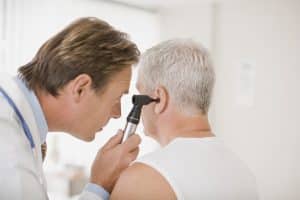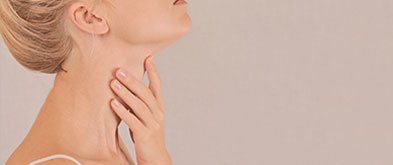Best Time to Get a Hearing Test
 How Often Should I Get a Hearing Test?
How Often Should I Get a Hearing Test?
Most people will get a hearing test approximately every five to ten years until the age of 45 or 50. Because most hearing loss is age-related, doctors often recommend getting hearing tests more frequently as you get older. About half of Americans 75 years of age or older suffer from some form of hearing loss. It is recommended to have a hearing test before any problems arise so that a baseline can be established.
Should I Ever Ask for a Hearing Test Early?
Ask your doctor about a hearing test if you notice early symptoms of hearing loss. One of the first signs of hearing loss is the inability to distinguish “s” and “f” sounds. You may also find that you have trouble with high-pitched voices or increasing difficulty hearing and understanding in background noise. Also consider having a hearing test if you have begun to have new or worsening tinnitus which is a ringing, buzzing, or humming in the ears.
Do Some People Need Hearing Tests More Often?
There are three main causes of hearing loss. The causes include physical blockage of the ear canal or middle ear, nerve damage, or a combination of both of these. Most hearing loss is age-related, so sticking to the standard schedule of hearing tests will help you monitor your hearing and get care as necessary. Anyone with a significant family history of hearing loss should have hearing testing more regularly.
Hearing loss can be caused or worsened by exposure to loud noise or continuous exposure to quieter noises over a certain decibel level. People who work with or around heavy equipment are at significant risk of hearing damage. Annual monitoring hearing testing is highly recommended if you have a history or noise exposure or are currently exposed to loud sounds either in a work environment or recreationally.
Hearing loss can also be precipitated by infection or other problems in the ear. For example, the collection of fluid in the middle ear which may be caused by allergies, sinus, or other upper respiratory conditions can lead to temporary loss of hearing. This is known as conductive hearing loss and will generally go away once the underlying problem has been addressed.
If you work in a field where you may be at risk of permanent hearing damage, you should have hearing tests performed every year. Take precautions by using ear protection whenever you are exposed to loud noise in a work environment or recreationally.
Is a Hearing Test Necessary to Get a Hearing Aid?
A hearing test is essential prior to purchasing a hearing aid. If you are not fully informed about your level of hearing loss and the underlying cause of the hearing loss, using a hearing aid incorrectly can lead to further hearing damage.
A hearing aid does not reverse hearing damage but instead amplifies sounds around the listener. Some hearing aids reduce background noise, making it easier to focus on others in conversation. However, you should still have regular hearing tests after you start using a hearing aid.
Who Performs a Hearing Test?
A hearing test should be performed by an audiologist. There are several different types of hearing tests that can be done together to provide a complete understanding of your hearing.
If you think you may be experiencing signs of hearing loss, make an appointment today with the ear, nose, and throat doctors of Lakeside Allergy ENT. We can provide the latest tests to help you with your hearing.

 How Often Should I Get a Hearing Test?
How Often Should I Get a Hearing Test?




